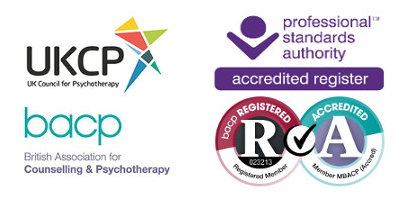Relationship Counselling in London
Individual relationship therapy for those who are single or who are with partners and want more rewarding, intimate and understanding bonds
To find and to share really meaningful, intimate relationships is not easy, it involves the ability to experience deep concern, responsibility, respect and understanding for another person, together with an intense desire for that person’s growth. Relationship Counselling seeks to explore what it is that you search for from your intimate or close bonds and, if you are troubled by problems in current relationships, what lies beneath the issues or difficulties.
“The real voyage of discovery consists not in seeking new landscapes, but in having new eyes.” Marcel Proust, novelist
You may want to work on relationships with parents, other family members, friends, people you are dating, people you live with, or people you have intimate relationships with or are married or partnered with.
These relationships may all, in their own way, legitimately be extremely important in our lives, because there is a fundamental human need to be loved in all the varieties and forms that takes – like wanting to be admired, noticed, valued, understood, appreciated or recognised by others.
Are we looking for the right person or should we be looking to become the right person?
When it comes to intimate relationships and to searching for a partner, people tend to think they need to identify and meet the ‘right person’ based on those criteria that they decide are important for them.
People rarely think that, first of all, they need to become a ‘right person’, in order to be ready to enter into a loving, intimate relationship and, above all, to be able to cultivate and sustain it over time.
Often people unconsciously persist in seeking the love they never fully received as a child from their father and/or mother, either in their adult relationships; in their careers or through their relationships with friends, co-workers or even their own children.
Sometimes they very subtly sabotage relationships or they run at the first appearance of intimacy, being afraid to love or not feeling worthy of being loved.
What kind of outcomes can relationship counselling achieve for the individual client?
There is an endless variety of situations that people bring to one-to-one relationship counselling. For example, people are helped:
- To get closer to a partner after many years of marriage or partnership, where the relationship has become stale or the surrounding circumstances of life are just very different from when the couple first met.
- To deal with difficulties and conflicts that arise as a relationship deepens or when children arrive.
- To maintain a ‘good enough’ relationship with an ex-partner where there are children in common who still need to be raised, looked after and co-parented.
- To form the confidence and clarity of mind needed to get into a first serious relationship at, say, age 45.
- To have self-confidence and clarity in order to be able to leave a relationship.
To re-establish a warm, affectionate relationship with a sibling, close relation or friend.
Relationship Counselling and intimacy (how therapy helps with intimacy inhibition and love phobia)
Any difficulties you experience with relationships in the present day (including the difficulty of not having a relationship) will likely be heightened by behaviour patterns with deep roots in your history.
A therapeutic relationship – the relationship between an individual client and counsellor – seeks to be an accepting, supportive, attuned, nurturing, caring, consistent relationship from which you will find that you draw sustenance, self-esteem and strength. It can provide the encouragement, warmth and compassion needed to help you accept your past without destructive embitterment, and to learn or re-learn to give real love to yourself and others now.
Marcus draws on a broad experience and a range of relationship counselling methods. One particular approach he finds effective is Pesso-Boyden Therapy which empowers you to re-shape your feelings about yourself in the context of your relationships, and then to change at a deep, unconscious level the behaviour patterns which some of your relationships may throw up, such as, for example, what’s commonly called ‘intimacy avoidance’ or ‘conflict avoidance’.
Relationship Counselling in Notting Hill with Marcus
If you are seeking more from your intimate relationships, be that with partners, family or friends, then contact Marcus to discuss one-to-one Relationship Counselling.
Here are some interesting articles and pages on Couples & Relationships that you might find helpful
One-in-Five Relationships in Crisis | A recent study warns 3 million people regularly argue or consider divorce – and 1.4 million families are ‘at breaking point;
Read the full article …



